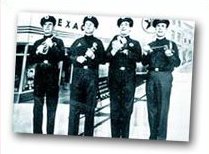FCC Chairman Kevin Martin received a reprimand from the Republican Leader of the House of Representatives, John A. Boehner, based upon reports that Martin plans to side with the commission’s two Democrats on Friday to interfere with the network management decisions of broadband providers in the matter of Comcast delaying the uploading of P2P file sharing when necessary to relieve network congestion:
When a small minority of subscribers – often using these applications to share pirated music and movies – began clogging the networks to the harm of the large majority of users, broadband providers began taking steps to alleviate the congestion. This, in turn, has prompted peer-to-peer developers to collaborate with broadband providers to find better ways to manage traffic. It is this market-based self-governing nature of the Internet that is the key to its success. Your heavy-handed attempts to inject the FCC into the middle of that process threaten to hijack the evolution of the Internet to everyone’s detriment. It will also deter the very broadband investment we need for the Internet to continue growing to meet the increasing demands being placed upon it.
Comcast has already adjusted its policy based upon public reaction and perhaps the threat of regulation. The question is whether this incident needs to be enshrined in permanent regulation or whether it indicates that the market actually works to protect legitimate consumer interests in the absence of reglation. I think it’s the latter.
For the FCC commissioners, this is a choice between good politics and good policy. Good politics would be to hammer Comcast, although that wouldn’t buy popularity for the Bush administration or any of its appointees. Their enemies are their enemies. Good policy would be to declare that this matter has been resolved. Ultimately, appointees of the Bush administration will be judged on their policies, not their politics.


 The Technology Liberation Front is the tech policy blog dedicated to keeping politicians' hands off the 'net and everything else related to technology.
The Technology Liberation Front is the tech policy blog dedicated to keeping politicians' hands off the 'net and everything else related to technology.